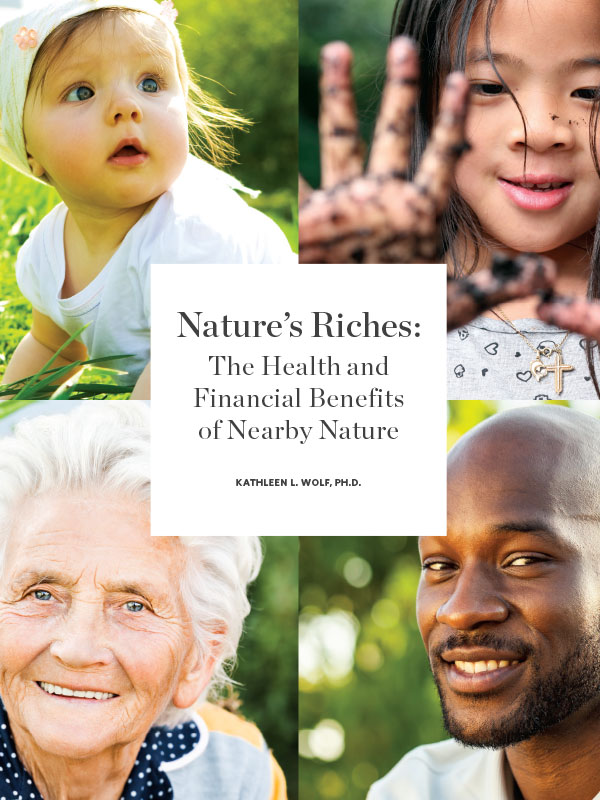Report
Nature’s Riches: The Health and Financial Benefits of Nearby Nature
Publication Date:
People can make choices to improve personal health, such as going to the gym or eating organic food, but what about just sitting under a tree?
Nearly 40 years of scientific research demonstrates that the experience of nature in cities contributes to our health and wellness. Having nearby nature in the vicinity of one’s everyday life – whether during your commute, taking a walk through the neighborhood, or at your child’s school – is now recognized to have important, yet often overlooked, positive effects on health. You don’t have to travel out beyond the city to gain nature-based benefits; nearby parks, trees, and gardens can improve everyone’s quality of life and wellness.
Experiences of metro nature – meaning the entire sweep of native, cultural and built nature in cities – contribute to healthier birth weight in babies, reduced ADHD symptoms in children, stress and anxiety reduction for adults, reduced neighborhood crime, faster healing in hospitals, and improved mental health for seniors. Do you see the pattern? Having access to small bits of nature is important across the entire life cycle, from cradle to grave.
Public health officials are increasingly interested in preventive and community-based health strategies. Chronic health issues at an early age can set up a person for other diseases or conditions later in life. Older people are more susceptible to secondary illnesses once they experience injury or disease. Nature doesn’t cure all ills, but having nature nearby supports opportunities for better mental and physical health, respite from busy lifestyles, and places that add meaning to life.
